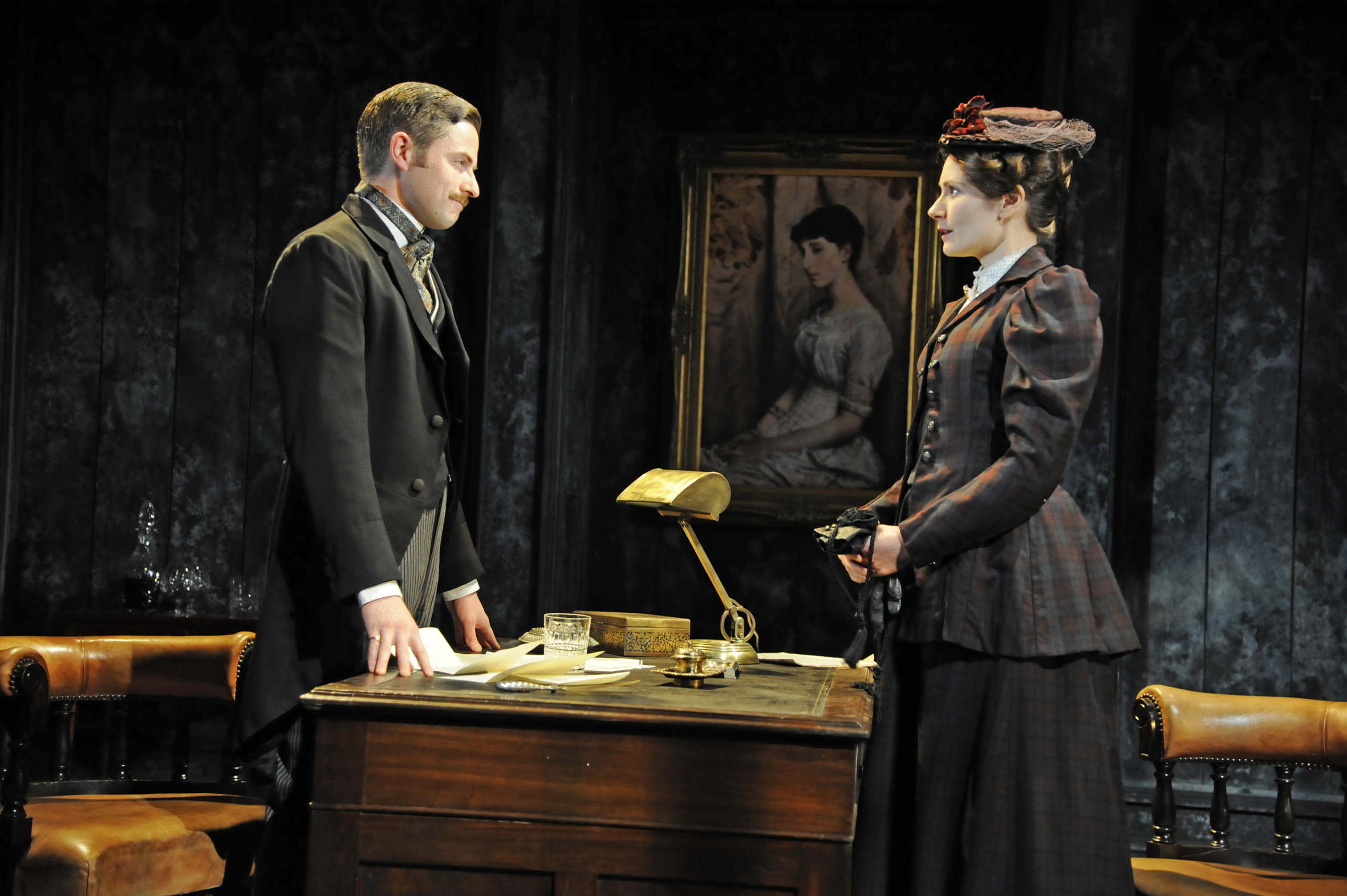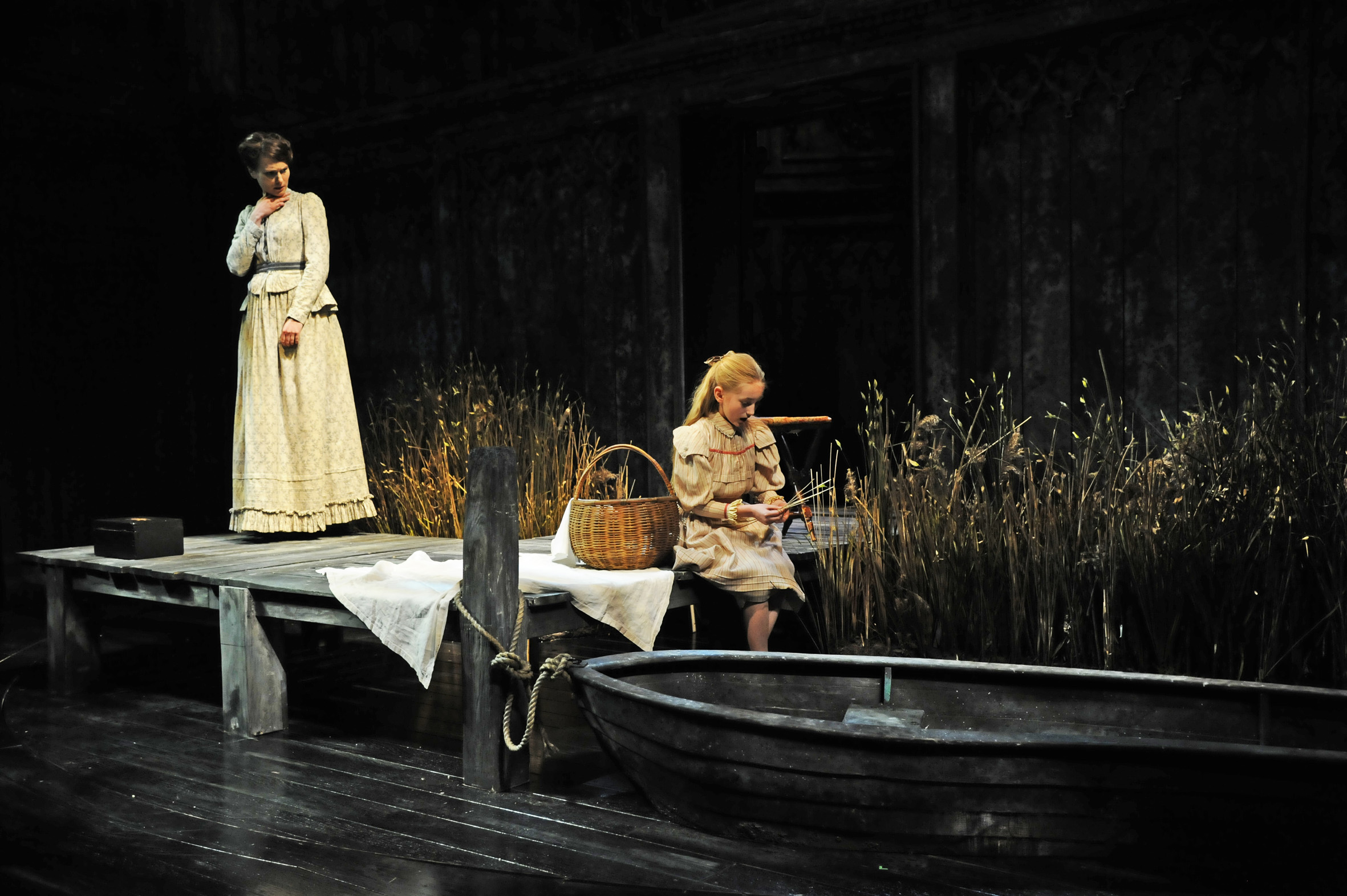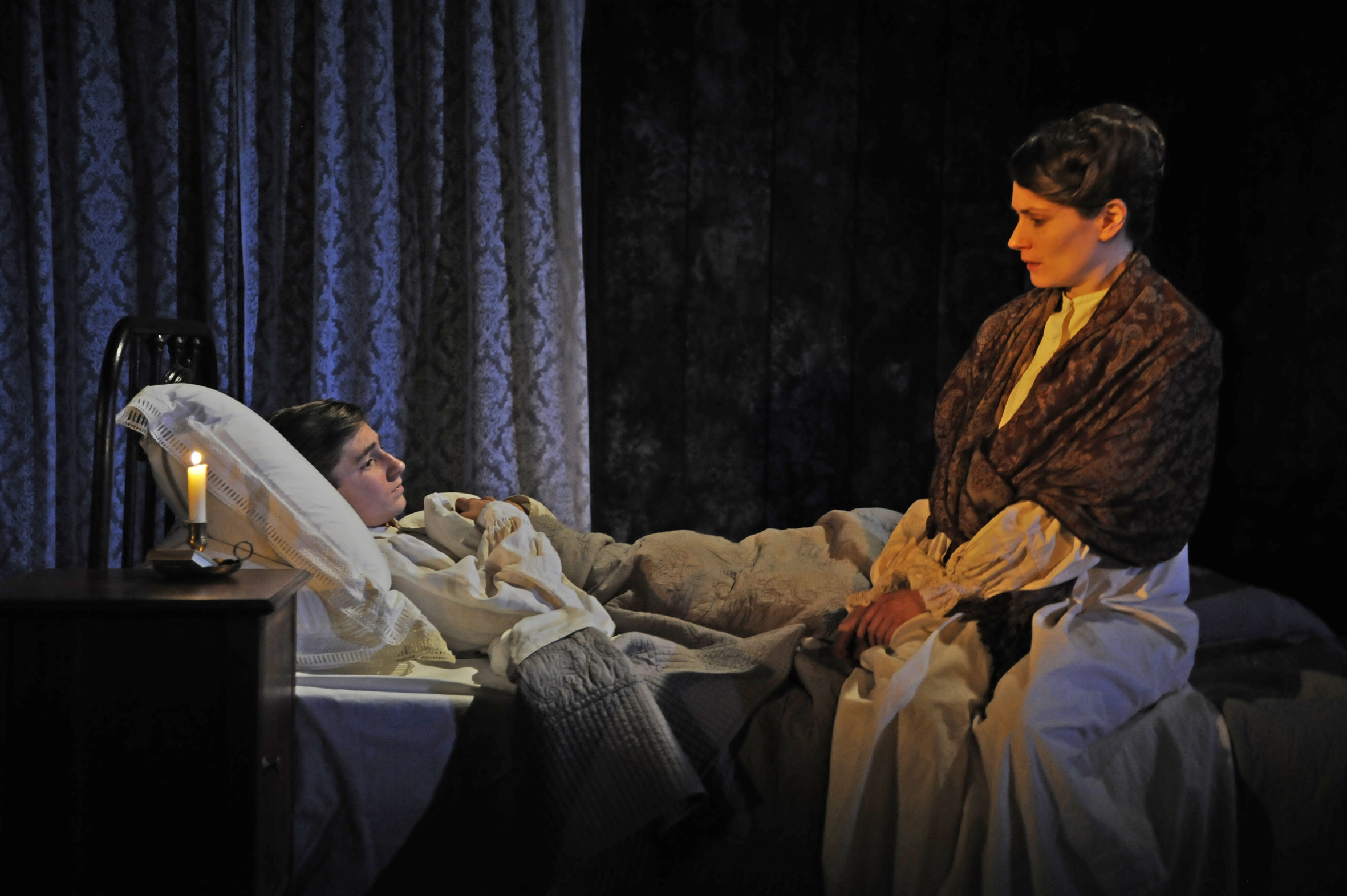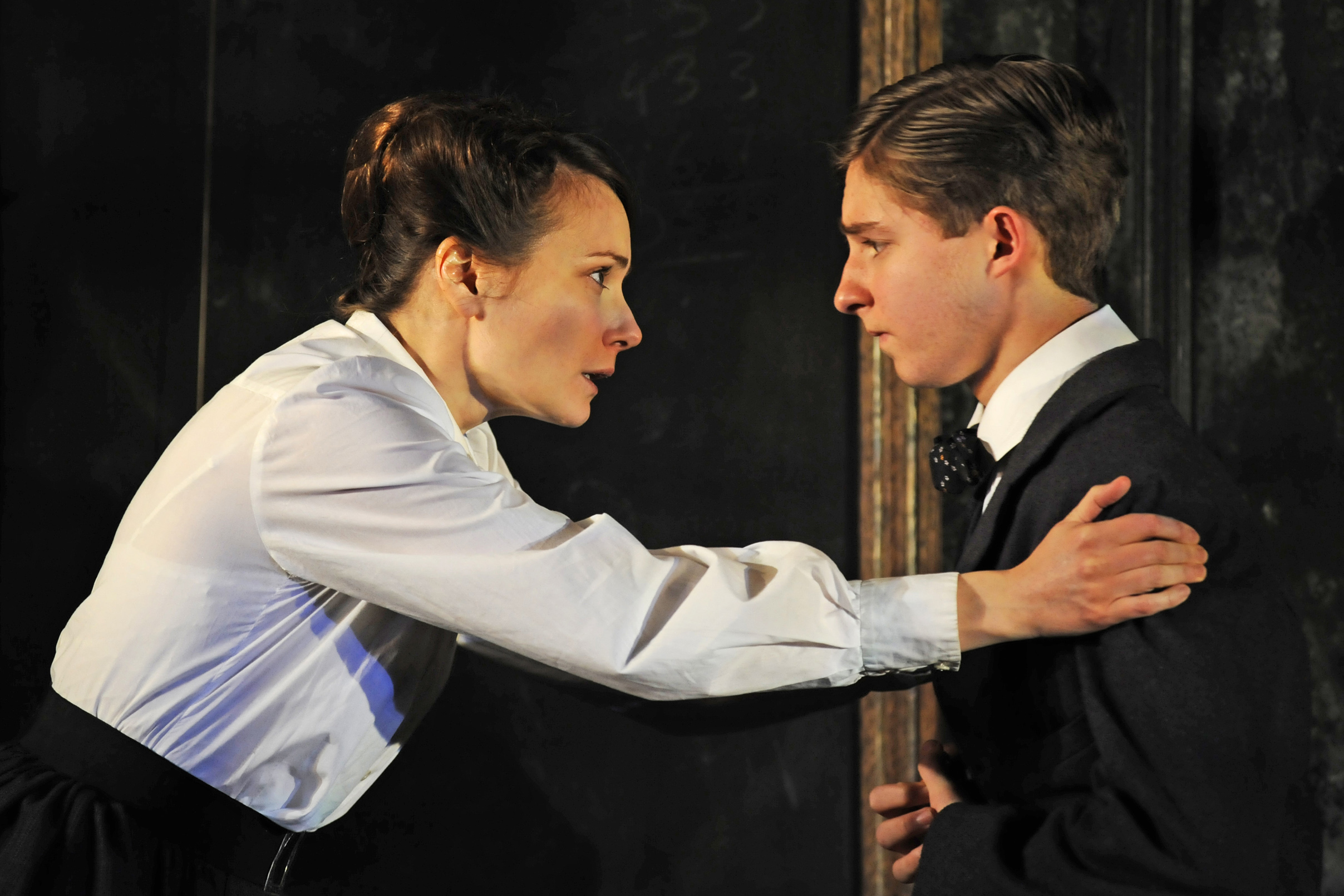“I need a double brandy!” exclaimed the gentleman behind me as we filed out of our seats for the interval at The Almeida. Lindsay Posner directs the world première of Rebecca Lenkiewicz’s adaptation of The Turn of the Screw by Henry James. Using straightforward shock tactics to revisit this jumpy and ghostly tale and heavily utilising the Freudian suggestions of the novella, the dashes of unexpected humour in the dialogue create a puzzling yet ultimately affecting show.

Published in 1898, James’ dark tale follows a young governess employed by a wealthy but unpaternal gentleman to care for his orphaned niece and nephew. We are privy to the governess’s interview with Mr. Sackville in this production, a blithe, charismatic and somewhat evasive character who wishes to have no communication with or regarding his young wards. Orlando Wells makes a brief but memorable turn in an opener with a lighter touch than one would expect given what is to come, but the awkward mentions of the previous governess hint at the overall tone.
We follow the revolving set to Bly, the old country residence where the children live – an imposing, Victorian manor with heavy wooden panelling and bats in the ceiling. It’s not hard to imagine ghosts here and the sense of foreboding is aided by the screeching, squealing and ticking sound effects.

A countrified Gemma Jones plays the housekeeper currently looking after nine-year old Flora since the last governess’ death, with the 12-year old Miles away at school. Jones is brilliant – staunch, deeply affectionate and yet clearly trying to hide something, we know not what. As events darken the housekeeper makes an ally of the governess by believing in her visions, fretting with a flush of the cheeks and a hand clamped to her breast.
Flora is played by three young actresses, who rotate the role night to night. Lucy Morton is engaging as the youngster, who witters on at nineteen to the dozen, her active imagination darting from one subject to the next. Morton maintains this pace and delivers her more comical lines with aplomb. Henry James – so good at social observation – allows wonderful lines to fall to the children that would only sound spiteful coming from adults, with the corruption of the innocence underpinning the gap between childhood and adulthood strikingly alluded to by Lenkiewicz.

Miles (17 year old Laurence Belcher) arrives at Bly having been expelled from school. He is difficult to make out – charming and assured, yet succumbing to increasingly angry outbursts. His confidence often falls into condescension, calling his governess “my dear” and “old girl” and it is such facetiousness from both children that prevents one warming to them fully. Belcher handles the complexities of this role with remarkable poise and creates an enigmatic Miles who at times appears genuinely dangerous and others like a lost orphaned boy.
Anna Madeley’s governess doesn’t have much to do other than seem harassed and panicked but she manages this more than credibly, intensifying her ferocity with control in the lead up to the climax. She gets increasingly agitated by the uneasy feeling in the house, the figures she sees at windows and the obscene letters anonymously left in her desk. The untold story of her predecessor, Ms. Jessel, and Ms. Jessel’s lover, Peter Quint, becomes obvious as the key, yet her students’ refusal to talk about the deceased is frustrating and she becomes convinced that they are in cohorts with these sinister forces. Determined to save the children from the ghosts who wish to steal them away, she becomes fiercely protective of them. Sadly, it is this character that suffers most from the loss of the book’s first person narrative since her reasoning and emotional responses would have benefitted from greater explanation. Given the precocity of the children, for instance, the speed and fervency of her affection towards them is a little perplexing.

This lack of commentary also enables significant interpretation. The governess is tempted to touch herself in the mirror by the content of one of the letters and when she is saying goodnight to Miles, he puts his hand onto her breast and gives her a lingering kiss on the lips. Although these Freudian allusions to sexual repression and corrupted relationships do not always seamlessly slot in they certainly add to the shock factor. When Miles questions the governess’s horror at his kiss the audience in turn questions his manipulative streak. There is a school of thought branding the former governess Miss Jessel and Peter Quint as child molesters.
The depravity of these ghosts is further intimated by appearances where they hump outside a window, and where Quint surfaces in the governess’ bed. Whether or not such eroticism of the text is warranted, the cleverness of this production is that it raises these questions; the many literary arguments on James’ text referenced in one go. This is a startling play – in more ways than one – superbly acted. The ghostly tricks are helped along by Derren Brown’s illusionist to create genuine fear in the audience, and you will leave with a marked sense of unease. Beware.
The Turn of the Screw at the Almeida until Saturday 16th March. Running time approximately 2 hours and 10 minutes including an interval. For more information and tickets visit the website.





1 Comment
I have booked tickets this Friday on the strength of this review. Thank you.